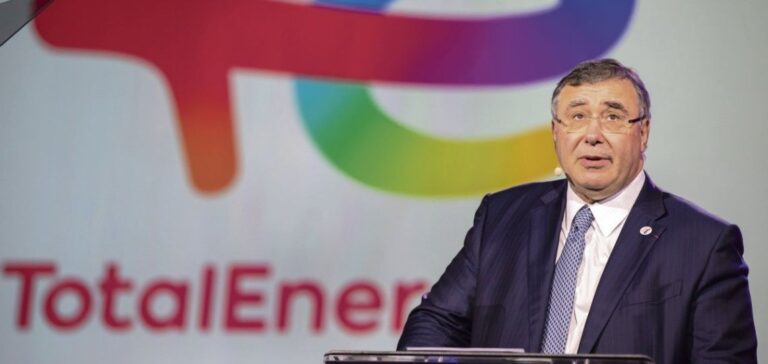During the annual general meeting held at TotalEnergies’ headquarters in the business district of La Défense, CEO Patrick Pouyanné confirmed to shareholders the continuity of the company’s current strategy. This approach emphasizes low-cost hydrocarbon production and progressive expansion into low-carbon electricity. The stated objective for TotalEnergies is clear: electricity should account for approximately 20% of total energy sales and production by 2030. Despite current economic uncertainties, Pouyanné emphasized the group’s ability to withstand fluctuating oil prices through disciplined investment practices. These comments come as TotalEnergies regularly faces criticism from environmental organizations and various NGOs.
Tensions during protests in Paris
Alongside the general meeting, several actions by the activist group Extinction Rebellion (XR) took place in Paris, protesting against TotalEnergies’ petroleum-related activities. Earlier in the day, around ten activists attempted to enter BNP Paribas’ headquarters, accusing the bank of financing fossil fuel projects led by TotalEnergies. Clashes occurred as protesters poured oil on the building’s stairs and threw fake banknotes, prompting rapid police intervention. The prefecture confirmed the arrest of seven individuals, while BNP Paribas strongly condemned these actions, stressing that its recent financing primarily targets low-carbon energy projects.
In a second incident, approximately fifty activists attempted to organize a “counter-general assembly” near the Sacré-Cœur, which was also swiftly halted by authorities. The two main organizers were placed in police custody, underscoring ongoing tensions between energy corporations and activist groups. These incidents highlight the atmosphere of persistent distrust faced by petroleum companies.
Unprecedented trial and adjustment of investments
Beyond activist demonstrations, TotalEnergies faces an unprecedented trial in Paris on June 5, accused of “misleading advertising.” Several NGOs claim the company has presented a distorted image of its role in the energy transition, misleading consumers about its actual environmental commitments. This trial occurs against the backdrop of other major European companies, such as Shell and BP, significantly adjusting their energy transition strategies.
Addressing these accusations, Patrick Pouyanné asserted that TotalEnergies’ strategy is driven by internal analysis anticipating a near-term plateau in oil demand alongside growing electricity demand. However, he clarified that the share of investments allocated to low-carbon energies would be reduced to approximately 25% of total investments between 2026 and 2030, down from the previously planned one-third.
Confirmation of listing in New York
Pouyanné also reaffirmed the group’s intention to pursue a continuous listing on the New York Stock Exchange, complementing its existing Paris listing. This decision aims to broaden the group’s international visibility and attract a more diverse investor base, while assuring shareholders of the company’s commitment to maintaining its headquarters in France. This strategic move positions TotalEnergies more effectively against its major international competitors.
The current decisions by TotalEnergies illustrate the complex challenges the group must navigate, leaving the financial sector to assess the long-term viability of these strategic choices within a shifting global energy market.






















